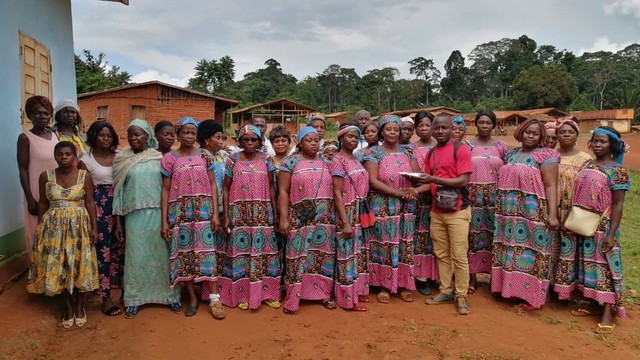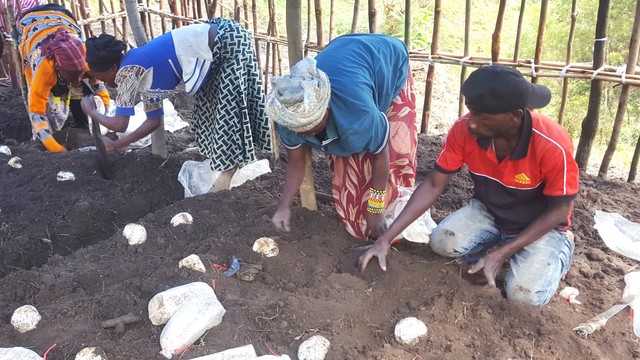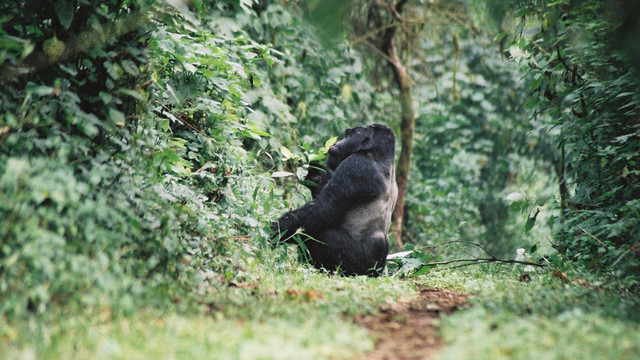A valuable learning experience
An intern looks at the lessons he has learnt during his internship with IIED.


Tom Pye helped redesign the Poverty and Conservation Learning Group (PCLG) newsletter, a monthly bulletin for people working on biodiversity conservation and poverty alleviation (Image: PCLG)
When beginning my MSc in September 2015 one of the aspects I was most looking forward to was the opportunity to undertake an internship as part of the course. I eventually chose a placement with IIED.
As what has subsequently proved to be an enjoyable and invaluable experience draws to a close, here are a few of the key lessons I have learned from my time here.
A tangible project
My initial project with IIED involved proposing a redesign of the Poverty and Conservation Learning Group (PCLG) newsletter, a monthly bulletin with news and opportunities for people working on biodiversity conservation and poverty alleviation.
The newsletter had not been updated for some time and was in need of a revamp. I was tasked with determining how the look and content could be improved.
This project helped me better understand the work carried out by the different research groups in IIED. I looked at several comparable newsletters in my search for inspiration for my proposed redesign, discovering similar organisations in the field.
My biggest takeaway from this project was an appreciation for the opportunity to contribute to something tangible as part of my internship. I was proud to see my recommendations taken on board when the redesigned newsletter launched in March 2016.
Driving change
Following my work with PCLG I was part of a project investigating the extent to which policies involving ecosystem-based adaptation (EBA) are present within international agreements.
EBA involves the sustainable management and restoration of ecosystems to help people adapt to the impacts of climate change, for example restoration of mangrove forests to protect against coastal erosion. It is a concept I must admit I knew little about prior to my involvement in this project.
The EBA project was an interesting contrast to my project with PCLG, both in terms of the content I have been researching and the skills I have drawn upon and developed.
Though the project is still ongoing, simply being part of the planning process has provided an invaluable demonstration of how IIED seeks to drive change, which is something I will certainly draw upon in the future.
Opening my eyes
I have also taken the chance to talk to senior staff to learn more about the organisation and its history and to prepare for an essay I will write about IIED for my course. I talked with staff working in a variety of roles at IIED, and these conversations opened my eyes to the range of opportunities available in the development sector.
Simply being part of day-to-day life at the organisation has proved a learning experience in itself. From my first day in the office I felt welcomed as a valuable member of the team and, most importantly, trusted to make a contribution to the organisation's work. Being part of such a dynamic and forward-thinking organisation has definitely given me encouragement for my future career choices (especially when making such decisions can be a bit daunting).
All in all, my time with IIED has been time well spent, providing an eye-opening and stimulating contrast to my studies.
When you're at the mercy of looming university deadlines, it can be very easy to lose sight of the values and passion which initially drove you to study. Spending time with IIED has reminded me why I took an interest in environmental science in the first place: a desire to drive genuine change to make the world a fairer and more equitable place.
It is an experience I look forward to drawing upon in my future attempts to do so.
Tom Pye (tom.pye@kcl.ac.uk) is a master's student at King's College, London.
The PCLG newsletter provides updates and news about opportunities for people working on poverty and conservation issues. You can subscribe and get it delivered via email.



